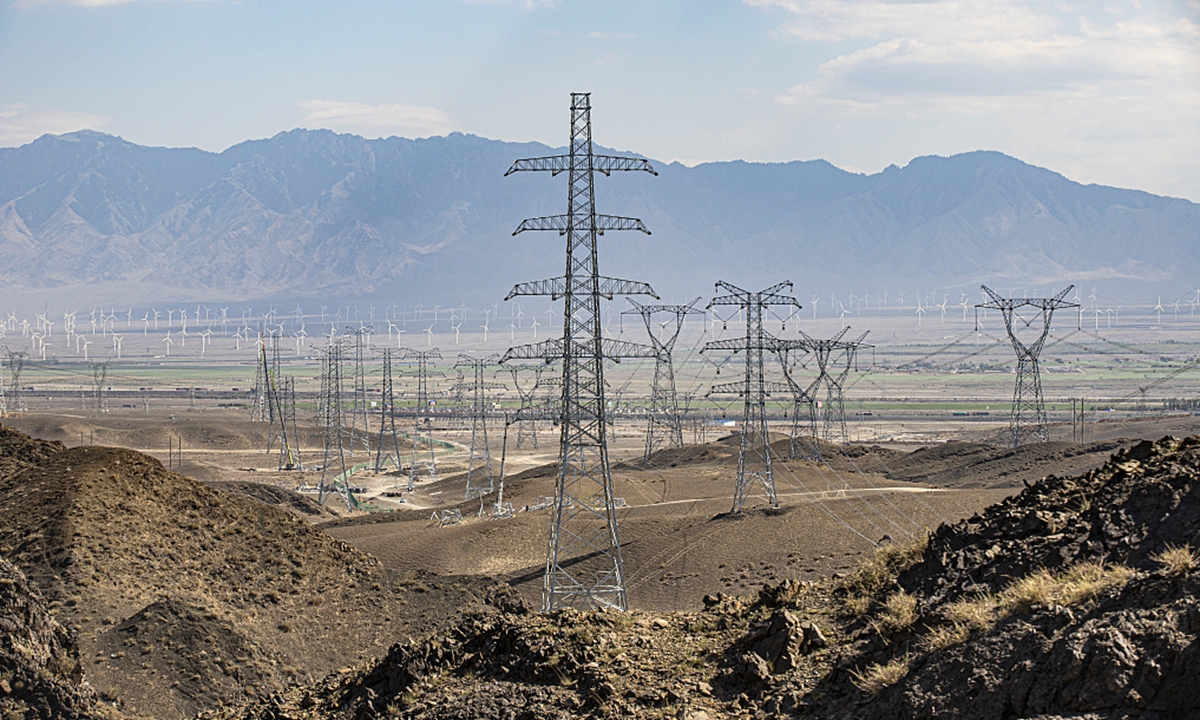Australia's coal import ratio is only 2%, nothing to do with China's temporary power shortages
By Tu Lei Source: Global Times Published: 2020/12/18 22:53:40 Last Updated: 2020/12/19 0:36:11
China will bridge the power gap in one or two weeks

Photo:VCG
China could resolve the supply shortage in one to two weeks given the governments' and companies' efforts, experts said.
The China National Coal Association on Friday urged coal firms to sign more medium- to long-term contracts to ensure a steady supply and stable prices amid tight supply and "abnormal" price fluctuations.
The association's remarks came as several provinces in China such as East China's Jiangxi and Zhejiang, as well as Central China's Hunan issued proposals to save electricity and start their orderly use, as electricity loads have increased rapidly.
Also, some foreign media have reported that China's power supply is struggling as winter temperatures plunge, and doubted if it is the ban on Australian coal to blame, according to abc.net.au on Friday.
China imported about 70 to 80 million tons per year from Australia, which only accounted for 2 percent for China's coal consumption, and "[the amount] is not worth mentioning at all," Lin Boqiang, director of the China Center for Energy Economics Research at Xiamen University, told the Global Times on Friday.
Even with imports from other countries such as Indonesia, the total imported coal is about six to seven percent, and China is self-sufficient in coal, Lin added.
Data from industry website cctd.com.cn showed that China imported 75 million tons of coal from Australia in 2019, the same as the previous year, with average monthly imports of 6.31 million tons. In comparison, the national coal consumption was about 2.8 billion tons of standard coal in 2019.
Industry insiders said that the sudden energy shortage is mainly due to the supply and demand gap, as China enters the coldest season, resulting in a surge in heating demand, plus China's V-shaped recovery, bringing an increase in exports, making the demand of electricity high.
The growth of industrial production and low temperatures have led to a surge in power demand beyond expectations, China's top economic planner National Development and Reform Commission said on Thursday, the Xinhua News Agency reported.
The National Bureau of Statistics showed that the value added of the industrial enterprises above a designated size in Zhejiang in November increased by 11.9 percent, followed by
Jiangxi's 7.9 percent growth and Hunan's 7.4 percent growth.
Temperatures in Hunan and Jiangxi have been abnormally low brought by strong cold air since December, which further increases electricity consumption as heating in these areas is dominated by electricity, NDRC said.
Extreme weather affects wind turbines, hydropower plants and photovoltaic power facilities, Feng Weizhong from Shanghai-based Shenergy Co told the Global Times on Friday, adding that China has been cutting some projects on coal-fired power in recent years, making the supply short to some extent.
China's electricity is mainly provided by thermal power stations that use coal, and coal has accounted for 68 percent of electricity supply in 2019, according to Feng.
Governments are taking measures against the shortage. NDRC said that it will guide power firms in different regions to ensure power supply and increase power generation capacity.
The State Grid Corporation of China said Friday night that they will take measures against the power shortage, such as increasing power transmission capacity and maximizing the power purchase needs for key provinces.
Hong Long of Datong Coal Mine Group, a major coal producer in North China's Shanxi Province, told the Global Times on Friday that ensuring coal supply and stabilizing the price are also the responsibility of state-owned enterprises.
"China is sure to stabilize power supply in one to two weeks with measures taken," Lin said.
However, experts still warn that such shortage also exposes problems in the power supply in China, such as transporting fees in China from north to south is even higher than that from overseas countries, as the suspended coal imports will exacerbate the imbalance in power supply.
The government should also pay attention to coal production when developing clean energy, as coal now can realize low emissions, and new energy has its limitations. Coal production has been in line with China's national conditions for many years, Feng added.
Newspaper headline: Power supply gap not overseas related
RELATED ARTICLES:
Posted in: COMPANIES